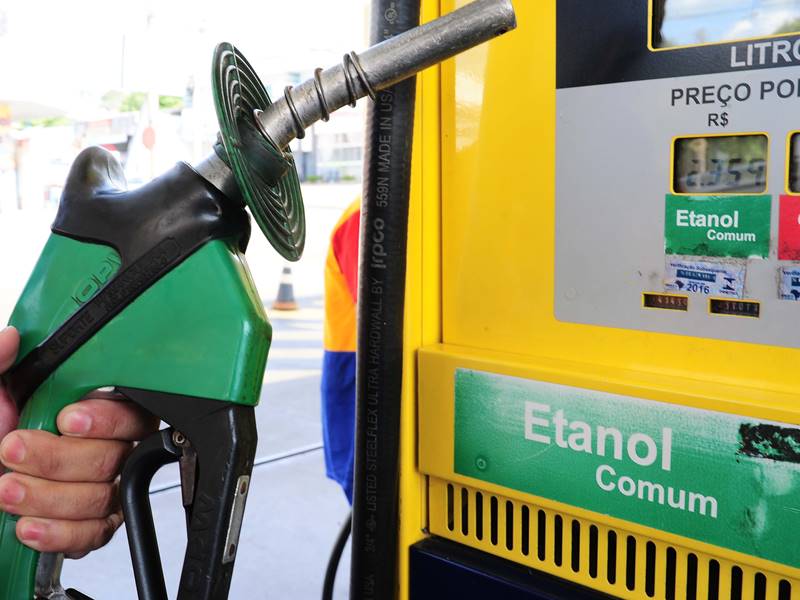With the change in the VAT tax (ICMS in Brazil) rule sanctioned by President Jair Bolsonaro at the end of June, the number of Brazilian cities where ethanol is more expensive than gasoline has increased.
In the most recent ANP weekly survey, this was the reality in 28 cities in the country, among 439 locations with the gasoline and ethanol price surveyed between August 21 and 27.
From the beginning of March to the end of June, the number of cities with an average ethanol price higher than gasoline didn’t reach ten. In the survey conducted in the week of June 19, gasoline was more expensive in all the 445 locations investigated.

Since July, however, this scenario has changed.
In the last survey in June, regular gasoline had an average resale price of R$7.39 (US$1.43), and ethanol had an average price of R$4.87. Last week, gasoline cost, on average, R$5.25, and ethanol R$3.84.
In this comparison, gasoline fell by 29%, and ethanol by 21%.
On June 23, Bolsonaro sanctioned a project that limits to 17% or 18%, depending on the state, the maximum ICMS tax rate charged on fuel, energy, public transportation, and communications.
However, the movement of falling prices is not homogeneous throughout the country. In Caxias do Sul, Rio Grande do Sul state, gasoline went from R$7.12 in the week ending June 25 to R$5.29 last week, a 25.7% decrease.
The average price of a liter of ethanol dropped 17.9% in the same period, from R$6.76 to R$5.55.
The biggest nominal price difference between ethanol and gasoline is in Rio Grande do Sul, with ethanol R$0.72 more expensive (R$5.99, compared to R$5.27 for gasoline) in the municipality of Ijuí.
Of the 28 cities with more expensive ethanol than gasoline, 19 are in Rio Grande do Sul, out of 35 locations analyzed. The others are three in Santa Catarina, three in Rondônia, and one each in Ceará, Pernambuco, and Pará.
With information from Valor Econômico

